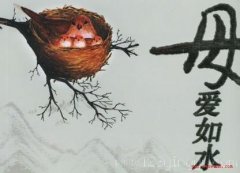散文英译汉佳作赏析:我父亲的音乐(2)
编辑:高中作文网 阅读 次
Gradually, to my surprise, I was able to string notes together and coordinate my hands to play simple songs. Often, after supper, my father would request a tune or two. As he sat in his easy chair, I would fumble through "Lady of Spain" and "Beer Barrel Polka."
渐渐地,让我吃惊的是,我竟然能把几个音符连起来了。手指的协调性也好点了,还能拉出几首简单的曲子。晚饭后,父亲常常会要我拉上一、两首曲子。他躺在安乐椅里,我则笨拙地拉完“西班牙女郎”和“啤酒桶波尔卡”。
"Very nice, better than last week," he'd say. Then I would follow into a medley of his favorites, "Red River Valley" and "Home on the Range," and he would drift off to sleep, the newspaper folded on his lap. I took it as a compliment that he could relax under the spell of my playing.
他会说,“不错,比上星期好,”然后我会接着拉他喜欢的曲子“红河谷”和“山上的家”。听着听着,他慢慢睡着了,报纸叠在腿上。我把这看作是一种赞扬:他能在我美妙的演奏中放松。
One July evening I was giving an almost flawless rendition of "Come Back to Sorrento," and my parents called me to an open window. An elderly neighbor, rarely seen outside her house, was leaning against our car humming dreamily to the tune. When I finished, she smiled broadly and called out, "I remember that song as a child in Italy. Beautiful, just beautiful."
七月的一个傍晚,我正在拉“重回索联托”,拉得几乎完美无缺。父母突然把我叫到窗前。一位极少出门、上了年纪的老邻居,正靠在我们的车旁,跟着曲子沉醉地哼唱着。当我拉完时,她咧开嘴笑了,大声说:“小时候在意大利我听到过这首歌曲,我还记得。太棒了,真是棒极了。
”Throughout the summer, Mr. Zelli's lessons grew more difficult. It took me a week and a half to master them now. All the while I could hear my buddies outside playing heated games of stickball. I'd also hear an occasional taunt; "Hey, where's your monkey and cup?"
整个夏天,泽利先生的课越来越难。现在要一个半星期才能掌握。练琴时,我总是听到伙伴们在外面玩棍球的嬉闹声。偶尔还听到奚落:“嗨,你的猴子和奖杯哪里去了?
”Such humiliation paled, though, beside the impending fall recital. I would have to play a solo on a local movie theater's stage. I wanted to skip the whole thing. Emotions boiled over in the car one Sunday afternoon. "I don't want to play a solo." I said. "You have to," replied my father.
不过,这种羞辱与即将来临的秋季演奏会相比,算不得什么。我得在当地一家影剧院舞台上独奏一曲。我想逃避这一切。一个星期天的下午,不满的情绪终于在车上爆发了。“我不想独奏,”我说。“你必须去,”父亲说。
"Why?" I shouted. "Because you didn't get to play your violin when you were a kid? Why should I have to play this stupid instrument when you never had to play yours?"Dad pulled the car over and pointed at me. "Because you can bring people joy. You can touch their hearts. That's a gift I won't let you throw away." He added softly, "Someday you'll have the chance I never had: you'll play beautiful music for your family. And you'll understand why you've worked so hard."
“为什么?”我叫了起来。“就因为你小时候没能拉上小提琴?你从来不用拉琴,我为什么必须拉那笨重的玩意?”爸爸把车开到路边,手指着我。“因为你能给人们带来快乐。你能拨动他们的心弦。我不会让你放弃这份才能。”爸爸又心平气和地说:“有一天你会有我从未有过的机会:你能为你的全家弹奏美妙的音乐。那时你会明白,如此努力到底是为什么。”
I was speechless. I had rarely heard Dad speak with such feeling about anything, much less the accordion. From then on, I practiced without my parents’ making me.
我不吱声了。我很少听到爸爸如此语重心长地跟我谈事情,更不用说是为了拉手风琴的事。从那以后,我练琴再也不用父母盯着。
The evening of the concert Mom wore glittery earrings and more makeup than I could remember. Dad got out of work early, put on a suit and tie, and slicked down his hair with Vitalis. They were ready an hour early, so we sat in the living room chatting nervously. I got the unspoken message that playing this one song was a dream come true for them.




